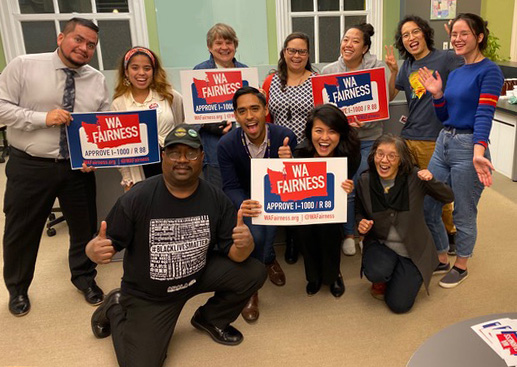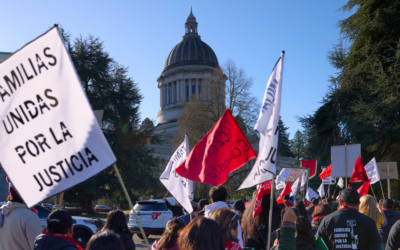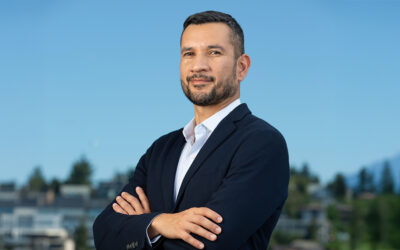Until Feb. 1, 2023, we were Group Health Foundation. This post was written under our former identity. To learn more about our new name, read our announcement here.

R-88 would have enabled the state to eliminate disparities in opportunity for people of color, women, veterans, and small business owners.
Like many in our sector, we often struggle to describe our priorities without jargon or buzz words. We describe our work as “systems change” or “policy advocacy,” and then layer on our commitment to “centering people who are most impacted.” After visiting all 39 counties in Washington and talking with hundreds of community, organization, and government leaders, we have come to understand that many people believe in these ideas too—though the language people use is as varied as the communities across our state.
When we then explain that we are an independent 501(c)(4) nonprofit—referring to our IRS tax-exempt designation that allows us to support a broad range of lobbying and advocacy efforts—people are understandably confused about who we are.
We thought it might be helpful to demonstrate who we are by sharing a story about a position we took in the recent election. Two months ago, we made our first public policy endorsement and financial contribution to support the Approve Referendum 88 (R-88) campaign, led by the Washington Fairness Coalition. This referendum would have enabled the state to eliminate disparities in opportunity for people of color, women, veterans, and small business owners. The measure was an effort to remedy the harmful impacts stemming from a 1998 initiative that banned the consideration of race, sex, or ethnicity in public employment, contracting, and education.
Why did we take a stand on this issue, and how it is tied to our mission?
The short answer is that, after listening to communities across the state, we realized there was no other option. Because of generous people throughout Washington who have taken the time to tell us about their hopes, dreams, and worries, we knew we could not remain credible advocates for health equity if we stayed silent on this critical issue.
We have heard important and consistent themes in every place we have visited—regardless of the community. The first is that Washington is failing to make progress in becoming a greater place of opportunity, especially for those not born into privilege. The second is a belief that opportunity and health will improve when leadership in school districts, local governments, and other public and nonprofit agencies is truly reflective of the communities they serve.
We knew from the beginning that the R-88 campaign would have a difficult road to victory given time constraints, modest resources, and public confusion about the referendum’s title and intent. Even so, this was an incredible opportunity to introduce who we are though our actions, and to stand in support of people and communities who live every day with the consequences of inequity. R-88 held the possibility of expanding fairness and opportunity throughout our state and improving the lives of millions of Washingtonians.
Our grants and other investments across the state will always be modest when compared to the budgets of school districts, cities, counties, and state agencies. We viewed this campaign as an important chance to hold our public systems and structures to a higher standard of reflecting the people who make up this state. But the potential outcome of this effort was not the only component that spurred us to action. How campaigns are run, managed, and staffed are critically important to building power and changing systems. If the strategies to win at the ballot are not led by communities who are most impacted, we miss an important chance to further open opportunity through the process. The R-88 campaign was chaired by two women of color, led by a woman of color campaign manager, and guided by a steering committee that was both majority people of color and majority women.
We are proud to have been part of a campaign that was different than most campaigns of the past, and we are proud that over 935,000 Washingtonians joined us in supporting R-88. While the campaign did not win in the end, we saw thousands of people in every corner of our state express their belief in efforts to remedy long-standing inequities. We measure success on a longer arc than one election cycle, and are proud to have aligned our resources with the communities we’ve met across the state.
This was the first of what we know will be many efforts to advance equity in Washington. We are committed to directly engaging with political and legislative processes to change the systems that uphold inequitable distributions of political, social, and economic power across our state. This will require bold investments and leveraging our resources on behalf of those who are designed out of power by the system that exists today.
We look forward to future opportunities to support communities as they continue to advocate for opportunity and a more equitable future.



